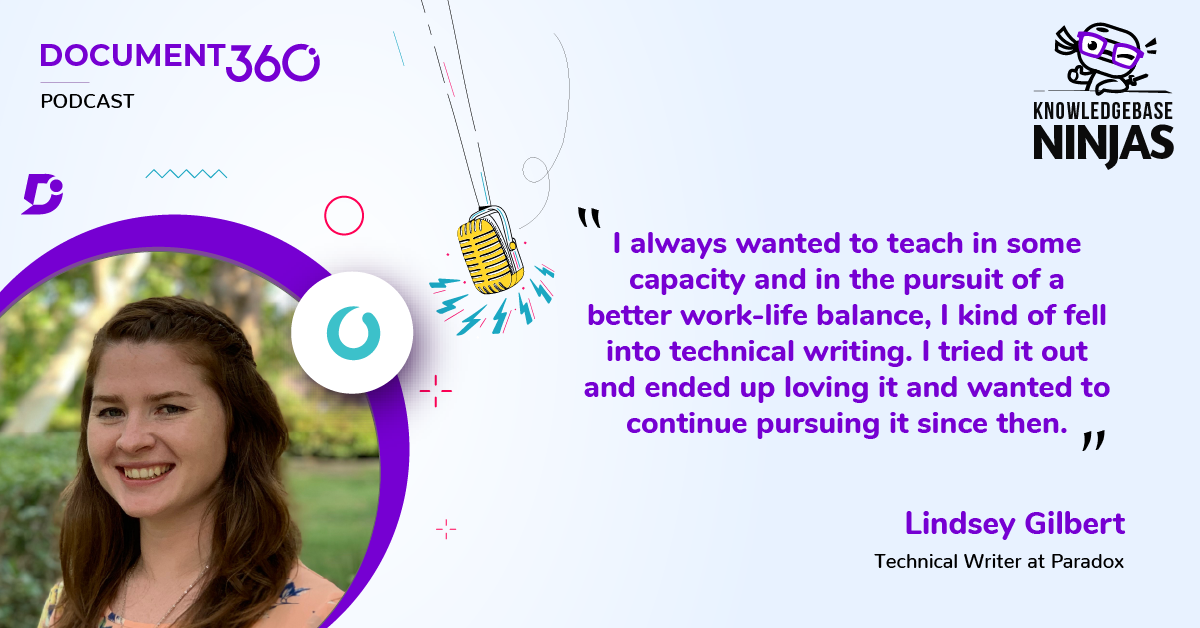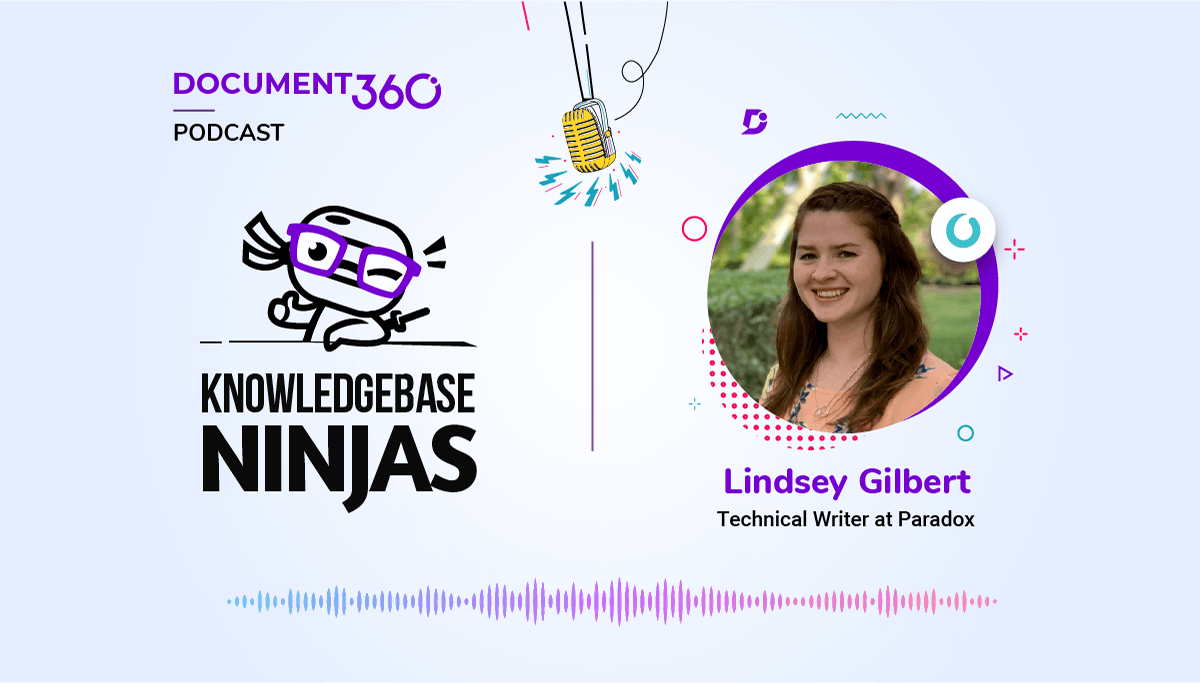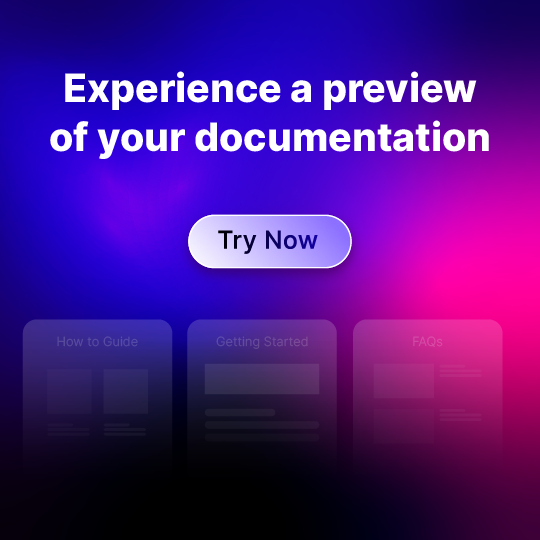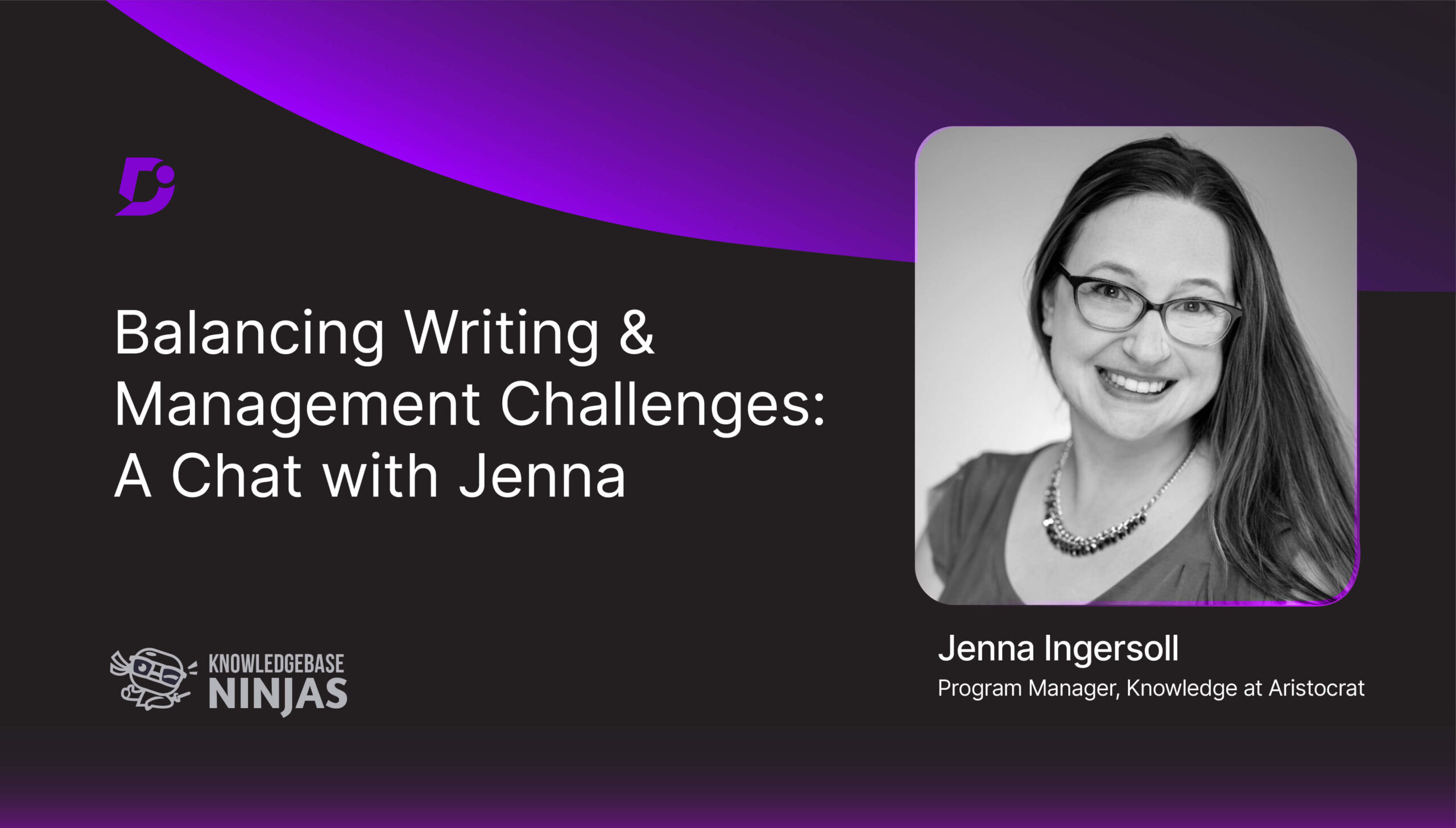Lindsey Gilbert, Technical Writer at Paradox joins us in this episode of Knowledgebase Ninjas Podcast and talks about her journey of being a technical writer and how does the technical writing career path look like.
About Lindsey
- Lindsey’s LinkedIn
- Before joining Paradox, she worked for R365 as a technical writer and the University of Indianapolis as an English Adjunct Professor.
- She has got a bachelor of secondary education in creative writing, literature, and literary studies, and a masters in English.
- Lindsey always had a dream about being a teacher since she was a kid and so after graduation, she tried her hands at teaching – both secondary and post-secondary classes for about two years.
- She loved working with students one on one, talking about their writing and giving them feedback but realized that she didn’t have a good work-life balance. But also thought there should be a way to still teach in some capacity, and kind of work a little bit more and have a better work-life balance, and that’s when she fell into technical writing.
Key Takeaway
- Lindsey feels that people from a variety of areas can get into the technical writing field and don’t want to have any specific degree for it.
- “There’re so many ways that one can go into technical writing. I’ve seen people who had technical writing degrees and I’ve seen others who may be started in a specific area at a technical or at a software company and from there moved into technical writing because either they didn’t have a technical writer and they needed someone to do it or, they just were low on resources and had to kind of hold the weight in different areas.”
- Before getting into the technical writing space, I enrolled in English literary studies and creative writing for my undergraduate degree. To take up teaching at a higher level, I applied to the University of Louisville to be a graduate teaching assistant. The benefit of working as a graduate teaching assistant is that you can work in multiple capacities.
- For my level, I would work with students in the writing center, review and provide them feedback on their work. And I interacted with students from all levels- from the very first year of college to, doctoral students.
- For the second year, I worked as a copy editor for the Louisville Logistics and Distribution Institute. There, I was able to provide students (whose first language was not English) feedback on their writing and research. Along with that, I was an adjunct instructor and taught two sections each semester of inter-level English at the college level. It was a great experience and helped to give me a better insight into the world of writing and communication.
- I also studied a little bit of linguistics, and it was helpful to get more of a bigger sense of languages and how we communicate. I believe through those experiences I was able to help push myself forward into technical writing because without it, I don’t think I would have been able to kind of make the career jump to being a technical writer.
- “As a technical writer, apart from writing, I do research and figure out what our team needs and decide on the best software solution that can benefit the company and our clients. In addition to that, I will be kind of paving new ways and creating new processes for a technical writing team, which in the future can bring more technical writers to build up and support the company in a variety of ways. “
- Reporting structure for documentation teams varies from company to company. Typically, technical writers work with the engineering portion of our team, but for client-facing documentation and release notes teams, they communicate directly to the client success and product marketing team.
- Talking about Paradox, she says, “our client success team has been doing a fantastic job at building relationships with clients and providing them with the documentation they need. In addition to that, the product team has been creating internal documentation to help educate our client’s success team on products that are being released.”
- “The role at Paradox has given me the ability to create a support center essentially from scratch with the help of course of our amazing team and their previous knowledge and documentation that has been created and maybe even see it grow and become a leader in this area one day.”
Lindsey’s biggest influence
Her biggest influence is her previous boss.
Key Resources
‘The obstacle is the way’ by Ryan Holiday- even though, it is not directly related to documentation, it provides a great perspective on challenging obstacles, especially in this realm.
- What documentation-related advice would Mary give to his 20-year-old self?
“I would say spend more time learning screenshot editing tools that are an area I’ve had to expand in my career. So learning that would be super powerful”.

Subscribe to Knowledgebase Ninjas:




 –
– 

